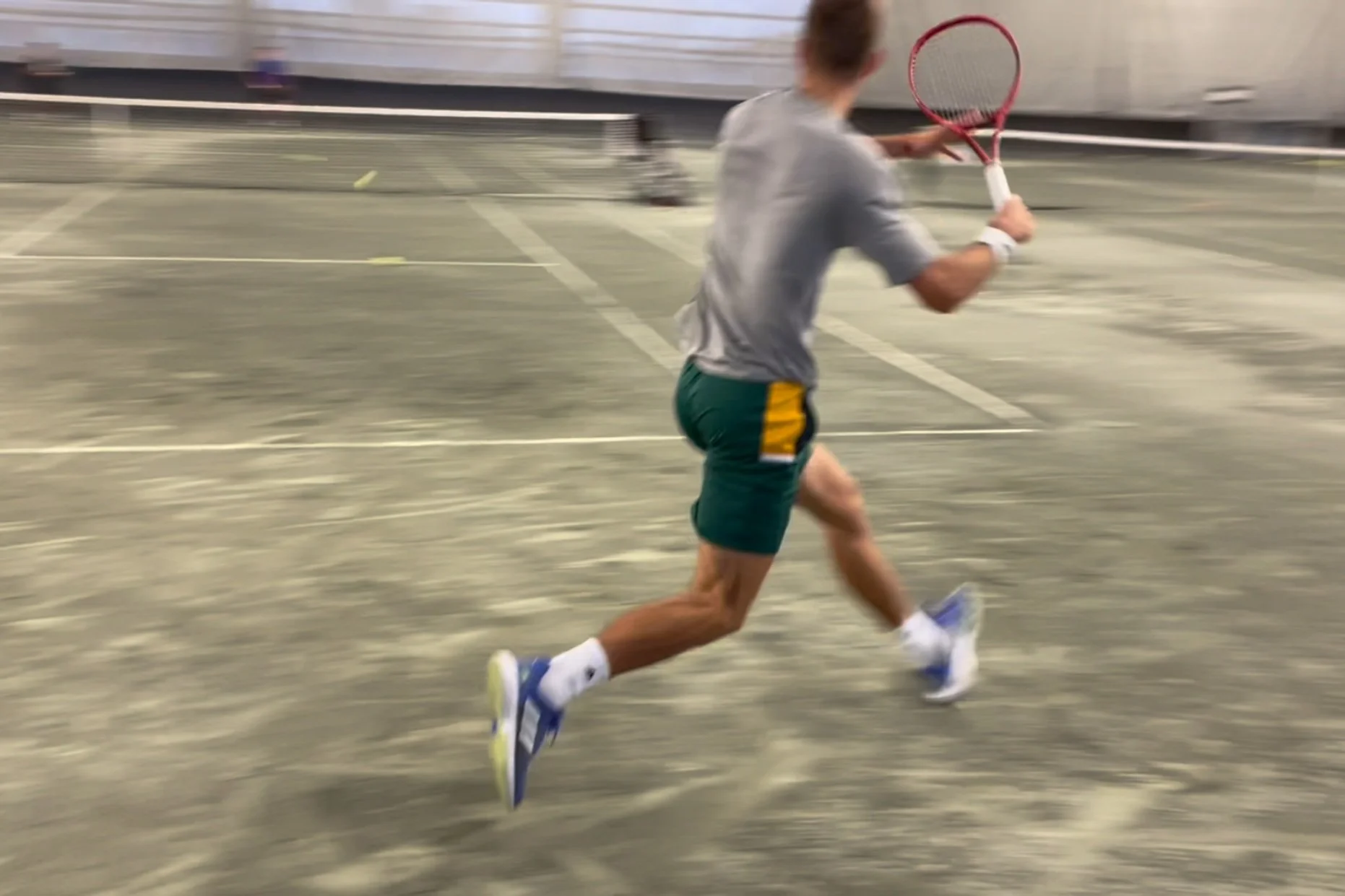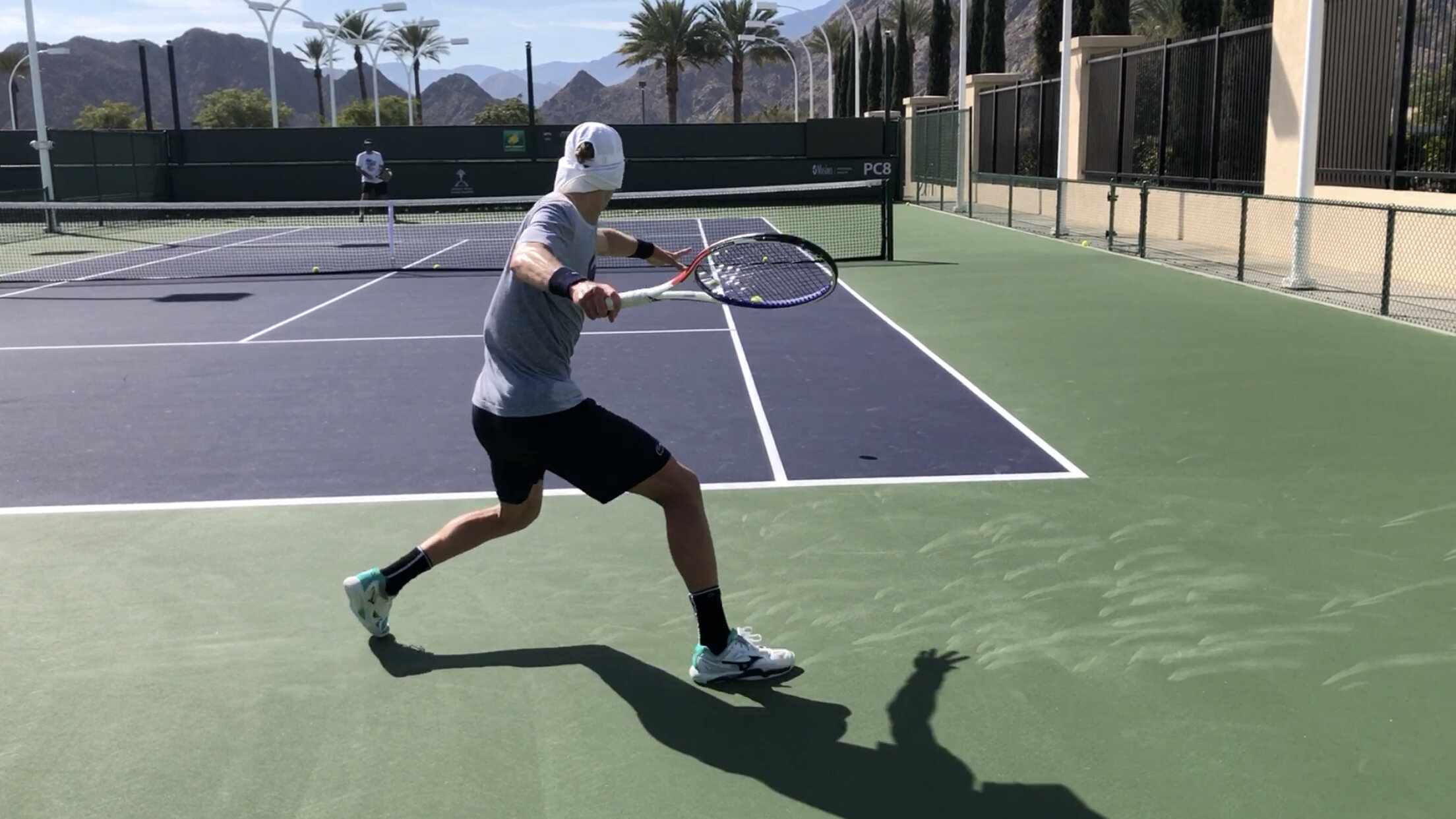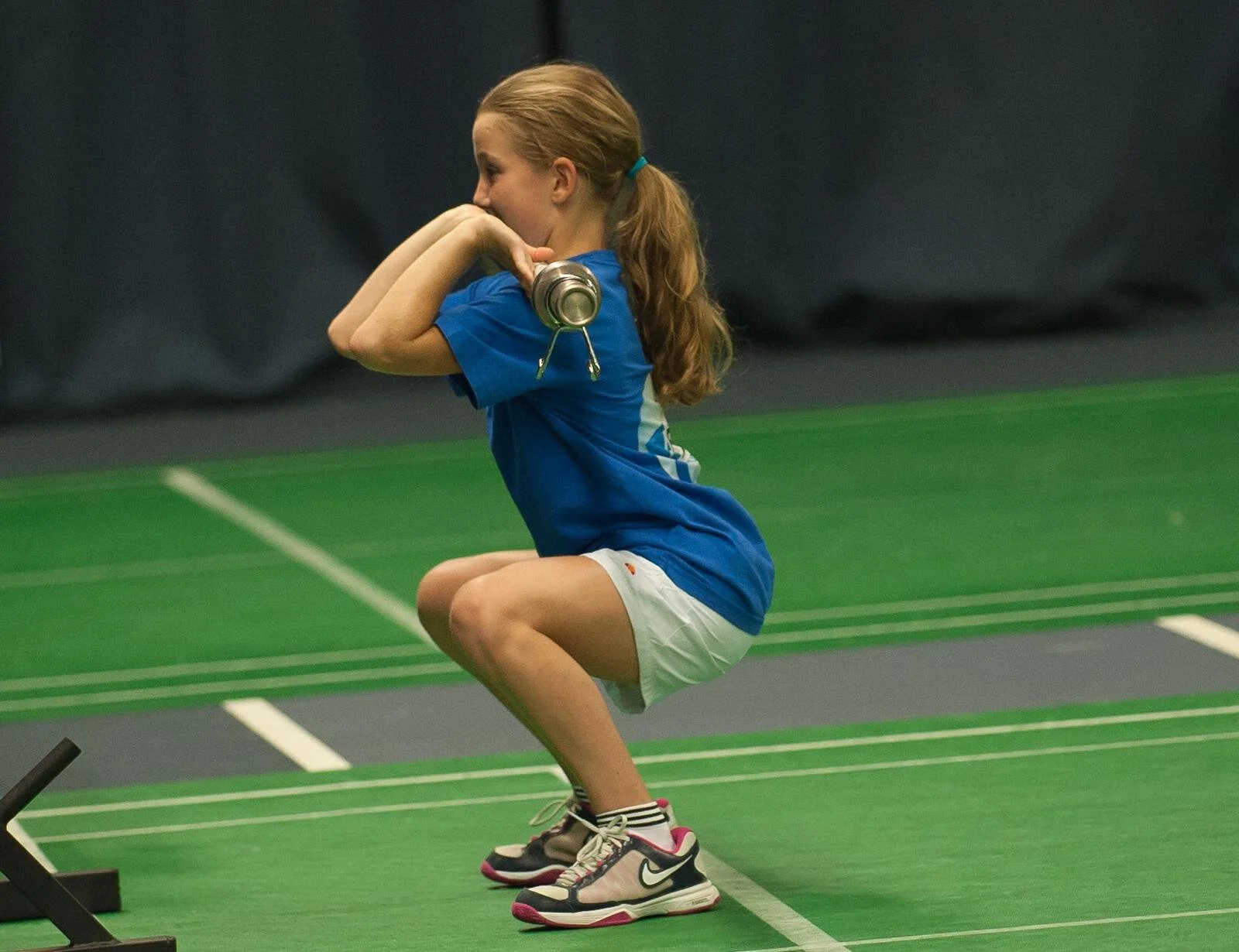I received several replies and comments from last week’s post on ‘why was I late’. Some of these were more ‘technical’ in nature. Others focused on the perceptual abilities that tennis demands (which if you haven’t noticed already, I can’t stress enough).
Over the last few weeks, I’ve had the chance to play more tennis. More than usual anyway. And it’s been really great (although I’m not in as good of shape as I thought I was!). The truth is, I’ll be 35 this year, which means I could, in theory, play senior ITF events. Maybe I will, who knows.
I recently wrote an article for ALTIS - an education platform & elite athlete training facility - where I outlined how I use their Kinogram Method with tennis players.
What I didn’t do in that post, however, was show a step-by-step approach of how to actually develop a kinogram - which is what I’m going to do here.
By this point, if you’re a tennis player, it’s no secret that you’re itching to get on the tennis court. Who wouldn’t be? It’s that time of year. Warmer weather. Flowers blooming. Outdoor tennis is around the corner.
Unfortunately, however, many players go about it the wrong way. Most, after a long layoff, are so eager to get back to the tennis court, they schedule multiple sessions that first week. Not only that, they’re so fired up that they hold nothing back. Running from side to side, hitting with that new found strength they’ve developed over the winter.
Here’s the thing, it’s kind of a mess out there, isn’t it? From the latest & greatest exercises to outdated information - and promises of quick results - the tennis fitness world can be a confusing place.
The truth is, there’s no one best exercise or one best program or one best [insert training fad of the week].
Instead, what we are left with are principles. Scientific principles to be exact. Like specificity and progressive overload and adaptation. So if a program is built on this type of foundation, improvements are almost ensured. If not...well, the reverse is probably true.
Don’t believe me? Consider for a moment what my clientele looks like:
I recently saw a post on a Facebook coaching forum. It was actually a question that went something like this, “coaches, have you seen any of your players improve their tennis because of their physical training?”.
My hand immediately covered my face and I began shaking my head in disbelief (no, no, no...it can’t be).
My answer to the question is an emphatic YES! Of course I’ve seen - on numerous occasions - physical preparation directly benefiting a player’s tennis game.
And in this post, I wanted to expand on these topics in more detail to add clarity to each.
First, here’s a bit of context. It’s been nearly 10 years since I began my master’s degree in sport science at the University of Edinburgh. It was 2010 and I was an eager young lad (as the scot’s would say).
Before then, I had a lot of ‘in the trenches’ experience - as a player and a coach. But going through a masters programme got me on the research train, and I’ve been on it ever since.
This past weekend, I had several players message me looking for a training program they could do for the next few weeks (or perhaps longer) - one that wouldn’t require any gym equipment. And in light of recent events, I’m guessing they aren’t the only tennis players (and athletes in general), in this scenario.
Because of this, I’ve taken some time to create what I’ve called, The ‘No Gym’ Program. So if you’re in the same situation as many (and don’t have access to gym equipment), just scroll to the end of this page and enter your email address - you’ll receive the program for free.
I don’t train as many junior players now as I have in the past. It’s not that I don’t want to, it’s just that I’m in a position right now where older players - those that are playing professionally (either on a full-time or part-time basis) - take up a big chunk of my time.
That said, I still manage to coach a number of younger players (both in-person and remote). The ages range but generally fall between 9 and 15… and all of them are exposed to strength training in one form or another.
The reason I’m bringing this up is because I often get asked by parents… “is lifting weights dangerous?” or “will lifting weights stunt my child’s growth?”...
Over the past several weeks, we’ve received a number of nutrition-related questions. While those questions were answered in private, we thought “you know what, if one person needs an answer to it, others probably do too.”
To dive deeper into some of these questions, I’ve asked my friend and colleague - Darin Huslander - to make sense of these topics.
When it comes to selecting the most appropriate exercise for a tennis player, it’s important that we look at it from every angle imaginable. The reason - tennis-play is not only multi-directional, but it’s also multi-planar. On top of that, there are different stances that players not only move through, but strike the ball in. And they do this on different surfaces - which can also make matters more challenging....and have an influence on exercises/drills.
Every competitive tennis player has experienced playing in the “zone” at some point in their career. You feel dynamic, but calm and relaxed. You have a feeling of strength, confidence and invulnerability. You take pleasure in the match and the battle at hand, without worrying about losing, or even winning for that matter. You forget about technical flaws, you focus on the ball and your target. In the end, you just play, and everything seems to flow, in so much that you might even lose track of time and the score. Seem familiar?
Whether you’ve experienced the zone during a competitive match or not, many will agree that the feelings I just described represent an ideal mental state to play elite level tennis. So what if I told you that you could get in the zone on command?
This past summer, we saw an influx of tennis players join our fitness programs. Many tennis players simply play tennis during the summer months - so having them join our off-court sessions was a good thing. A typical schedule for these players would see them hitting for about 1.5-2 hours per day and spending another 3-4 days with us in the gym.
While it’s great to see tennis players getting after it in the weight room, we spotted an unwanted trend amongst the group. Fatigue. But not the fatigue you’d normally encounter after 2 hours of tennis or a gruelling match. No, this was more of a general type of fatigue. One that’s typical amongst tennis players (especially juniors) but isn’t always easy to pinpoint it’s root cause.
A few weeks back, I had the privilege of working alongside coach Marcel du Coudray. We were coaching his pupil - ATP player Marc Polmans - at the Rogers Cup in my hometown of Montreal. Marc was accepted as the last entry into qualifying and got his first top 50 win against Andrey Rublev where he came back from 3-5 down in the 3rd set and save 3 match points at 3-6 down in the breaker (Rublev was ranked #49 in the world at the time of the match).
Tennis has evolved. From racquet technology to improved training methodologies and everything in between. We now see a different type of tennis being played. Overall, it’s faster, points are shorter and there’s no denying that it’s more power oriented. Because of this, players have had to adapt.
And adapt they have. It’s not uncommon to see players lifting weights to gain more strength & power…
Over the years, whenever I’ve been in the weight room with young male tennis players, the following question always seemed to come up - “when are we going to bench?”. No surprise here as most teen boys are eager to work on their ‘pecs’ (and in case you’re wondering, it’s not to improve tennis performance).
But is there a place for the bench press in the training programs of tennis players? There are many that believe it’s completely useless; some even take it to the point where programming push-ups for players is taboo (FYI, doing push-ups for tennis isn’t bad; doing poor push-ups, with incorrect technique, at the wrong times, and in excess, is bad...but more on that rant in another post). Others do bench 3x a week, trying to get that ‘pump’ feeling.
Many in tennis are fanatical about technique. Everything from a player’s grip, to their elbow placement on the forehand, to the degree of knee bend on the serve and everything in between. Some coaches take it to the point where you need a ruler, a protractor (and perhaps a PhD) just to analyze a basic groundstroke.
While I too believe that technique and mechanics play a vital role when it comes to playing high calibre tennis, we must respect the uniqueness of each individual. Take any 2 players on tour and compare them side by side, you’ll notice that variations exist - even when attempting to execute the same shot!
Specific tennis fitness tests that take into account technical efficiency, have been validated scientifically (part 1) and could be considered ‘gold standards’. But these tests are exclusively reserved for players in well-structured centres because of the detailed methodology necessary for successful execution.
For years, national federations have used the multistage fitness test (or 20m shuttle run test) to evaluate aerobic fitness due to its practical implementation and ease of use. However, though it involves change-of-direction (COD) movements, it’s still a continuous incremental test and does not represent the intermittent characteristics of tennis play.
A tennis match is characterized by intermittent exercise, alternating short (4–10 second) bouts of high intensity and short (10–20 second) recovery bouts, interrupted by several periods of longer duration rest (60–90 seconds). The running activities of players encompass high accelerations and decelerations but low velocities reflecting the intermittent play involved in tennis, which does not allow high velocities to be reached (Hoppe et al, 2014).
“Get set”...“use your legs”...“keep your wrist locked”...“step in!”...“move forward”...“hit higher”...“follow-through”...
If you walk by a tennis court during a lesson, these are only some of the phrases you’ll hear being shouted from across the net. The problem (beyond their vagueness) - as we alluded to in last week’s post - is the constant bombardment of these phrases. At times, players don’t just hear one cue or piece of feedback, but 5 or more. And further to that, it’s on every ball! Is this feedback facilitating learning? Or hindering it?










